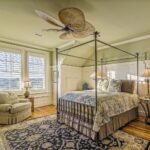Are you struggling to get a good night’s sleep? Bed bugs might be the culprit behind your restless nights. These tiny pests can have a significant impact on the quality of your sleep, causing physical discomfort, psychological distress, and disrupted sleep patterns.
When bed bugs bite, they leave behind itchy, red welts on your skin. The physical discomfort can be unbearable, leading to restless tossing and turning throughout the night. Furthermore, the psychological distress and anxiety caused by the presence of bed bugs can exacerbate sleep difficulties. The fear of being bitten again and the constant worry about infestation can take a toll on your mental well-being.
In addition to the discomfort and distress, bed bug bites can also trigger allergic reactions and skin rashes in some individuals. These allergic reactions can further disrupt your sleep, making it difficult to find a comfortable position and leading to excessive scratching.
To improve your sleep quality and prevent further infestation, it is crucial to implement effective prevention and treatment methods. This article will delve into the various aspects of bed bug impact on sleep quality, providing you with evidence-based research and practical solutions to regain a peaceful and uninterrupted night’s sleep.
The Physical Discomfort of Bed Bug Bites
You can’t help but toss and turn all night as those itchy, painful bed bug bites torment your every move. The physical discomfort caused by these bites can have a significant impact on your sleep quality.
Research has shown that bed bug bites can cause intense itching, redness, swelling, and even allergic reactions in some individuals. This constant irritation can make it extremely difficult to find a comfortable position to sleep in, leading to frequent awakenings throughout the night.
Additionally, the pain and discomfort associated with bed bug bites can cause increased restlessness and agitation, further disrupting your sleep. Studies have also found that the presence of bed bugs can lead to increased anxiety and stress, which can negatively affect sleep quality.
In conclusion, the physical discomfort caused by bed bug bites can greatly impair your ability to get a restful night’s sleep.
Psychological Distress and Anxiety
Experiencing psychological distress and anxiety can significantly disrupt one’s overall sense of well-being and ability to achieve restful nights. Bed bug infestations have been found to have a profound impact on individuals’ mental health, leading to increased levels of anxiety and psychological distress.
Research has shown that the presence of bed bugs can trigger feelings of helplessness, fear, and paranoia. The constant worry of being bitten during sleep can lead to sleep deprivation and further exacerbate the psychological distress.
Additionally, individuals may experience symptoms such as irritability, difficulty concentrating, and impaired cognitive functioning as a result of their heightened anxiety levels. The psychological impact of bed bugs extends beyond the physical discomfort of bites, highlighting the need for comprehensive interventions that address both the physical and mental health aspects of bed bug infestations.
Skin Rashes and Allergic Reactions
Skin rashes and allergic reactions can cause severe discomfort and leave individuals feeling frustrated and helpless. When bed bugs infest a sleeping area, their bites can lead to various skin reactions. These reactions often manifest as itchy red welts or raised bumps on the skin. In some cases, the affected area may become swollen and inflamed.
The intensity of the reaction can vary depending on an individual’s sensitivity to the bed bug bites. Research has shown that certain people may develop an allergic response to the saliva injected by the bugs during feeding. This can lead to more severe symptoms such as blisters or hives.
The persistent itching caused by these rashes can disrupt sleep patterns, leading to further sleep deprivation and negative impacts on overall sleep quality. It’s crucial for individuals to seek medical attention and implement effective bed bug control measures to alleviate these skin reactions and improve sleep quality.
Disrupted Sleep Patterns
When your sleep is disrupted by these pesky critters, it can lead to a frustrating cycle of exhaustion and restlessness. Bed bugs have been found to disrupt sleep patterns, causing frequent awakenings throughout the night. Research shows that individuals who are exposed to bed bugs experience decreased sleep efficiency and increased sleep fragmentation. This means that they spend less time in deep, restorative sleep and more time tossing and turning.
Disrupted sleep patterns can have a profound impact on overall sleep quality and can lead to daytime sleepiness, decreased cognitive function, and impaired mood. Furthermore, studies have shown that individuals who are exposed to bed bugs are more likely to develop insomnia symptoms, such as difficulty falling asleep and maintaining sleep.
Therefore, it’s crucial to address bed bug infestations promptly to minimize the negative impact on sleep quality.
Prevention and Treatment Methods
To prevent and treat bed bug infestations, you need to take immediate action and utilize effective methods that will restore your peace of mind and allow you to enjoy uninterrupted, rejuvenating sleep.
Prevention is crucial, and it starts with regular inspection of your sleeping environment, including your mattress, bed frame, and surrounding areas. Encasing your mattress and box spring in bed bug-proof covers can provide an extra layer of protection. Additionally, reducing clutter and maintaining cleanliness in your bedroom can help deter bed bugs from infesting your space.
If you do find evidence of bed bugs, treatment options include vacuuming, steam cleaning, and using insecticides specifically designed for bed bug eradication. It’s important to carefully follow instructions and consider seeking professional assistance to ensure effective treatment.

By being proactive and utilizing these prevention and treatment methods, you can reclaim your sleep quality and eliminate the impact of bed bugs on your well-being.
Frequently Asked Questions
Can bed bugs cause any long-term health issues?
Bed bugs can cause long-term health issues such as allergic reactions, skin infections, and psychological distress. Studies have shown that prolonged exposure to bed bugs can lead to anxiety, insomnia, and decreased overall quality of life.
How quickly can a bed bug infestation spread throughout a home?
Bed bug infestations can spread rapidly throughout a home, with adult bugs capable of crawling 3-4 feet per minute. Infestations can grow in as little as a few weeks if left untreated.
Are there any natural remedies for treating bed bug bites?
Yes, there are several natural remedies for treating bed bug bites. Applying aloe vera gel, tea tree oil, or lavender oil to the affected area can help relieve itching and inflammation.
Can bed bugs survive in extreme temperatures?
Yes, bed bugs can survive in extreme temperatures. Research shows that they can withstand temperatures as low as -32°C and as high as 46°C, making it difficult to eliminate them solely through temperature extremes.
What are some common misconceptions about bed bugs?
Common misconceptions about bed bugs include thinking they only infest dirty homes, that they are too small to see, and that they only bite at night. However, research shows that bed bugs can infest any home and their bites can occur at any time.
Conclusion
In conclusion, the presence of bed bugs can have a significant impact on your sleep quality. The physical discomfort caused by their bites can lead to sleep disturbances and restless nights. Additionally, the psychological distress and anxiety associated with bed bug infestations can further hinder your ability to sleep peacefully.
Skin rashes and allergic reactions can also contribute to sleep disruptions. It’s crucial to prioritize prevention and treatment methods to alleviate the negative effects of bed bugs on your sleep and overall well-being.










